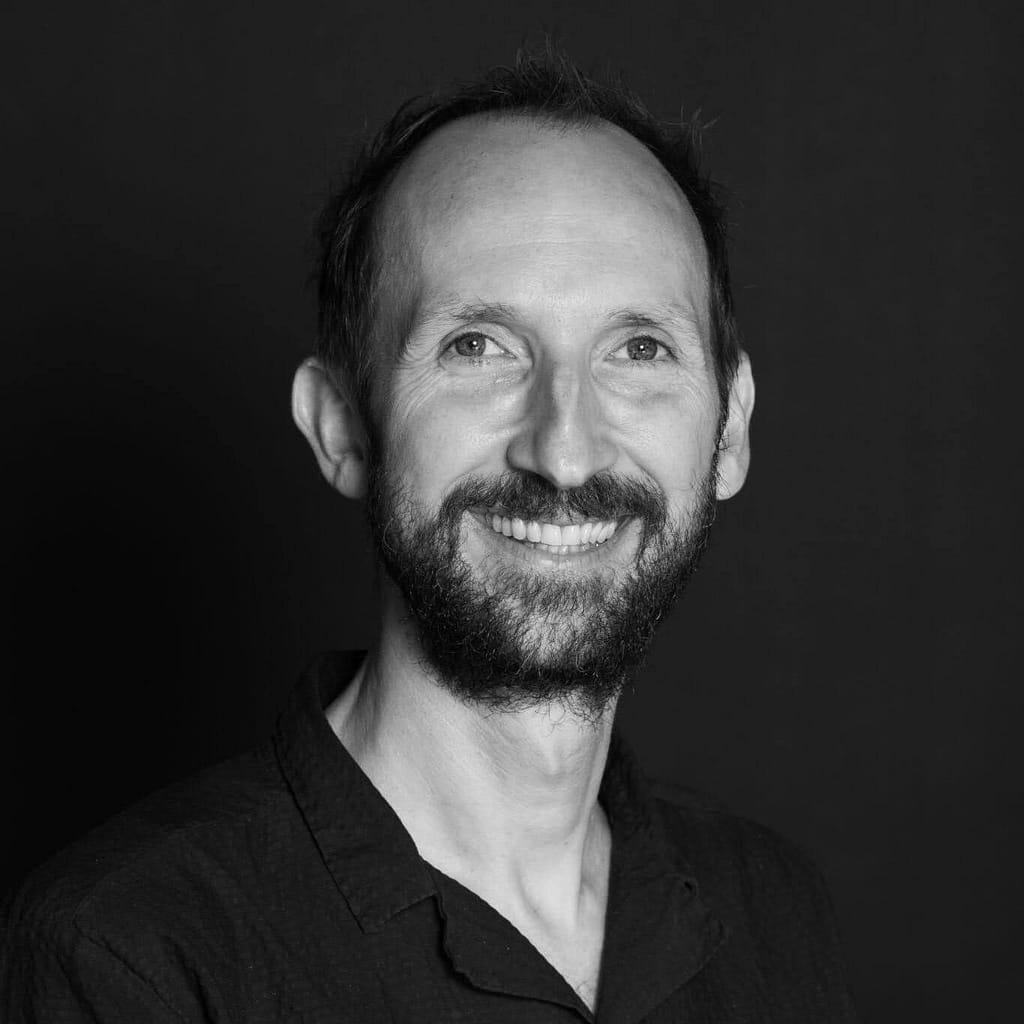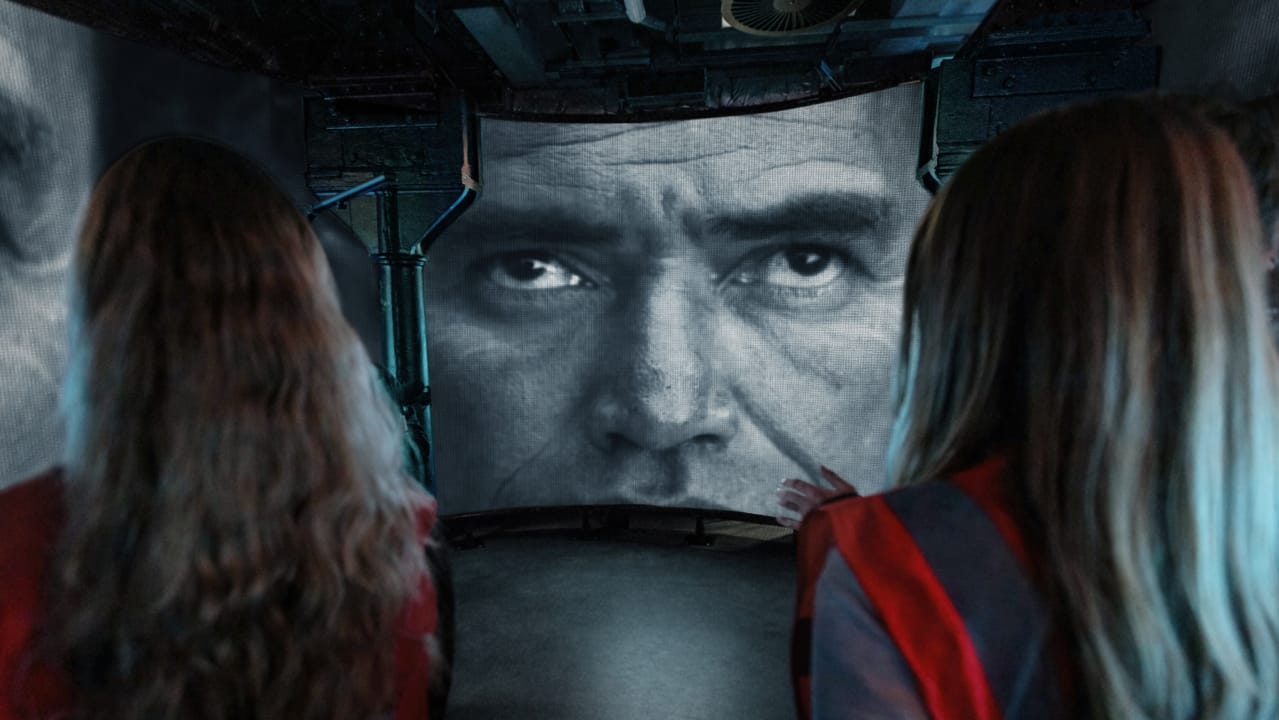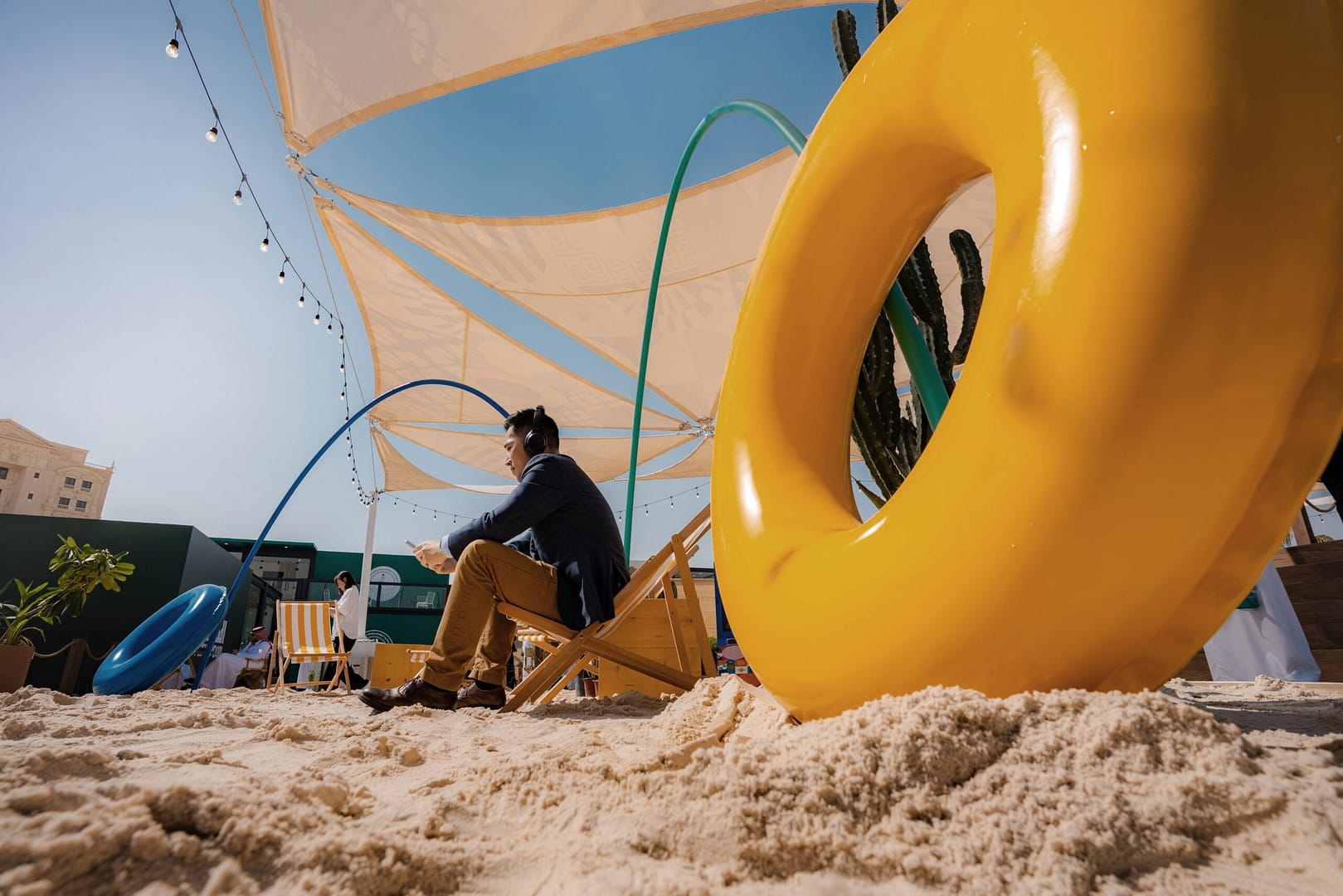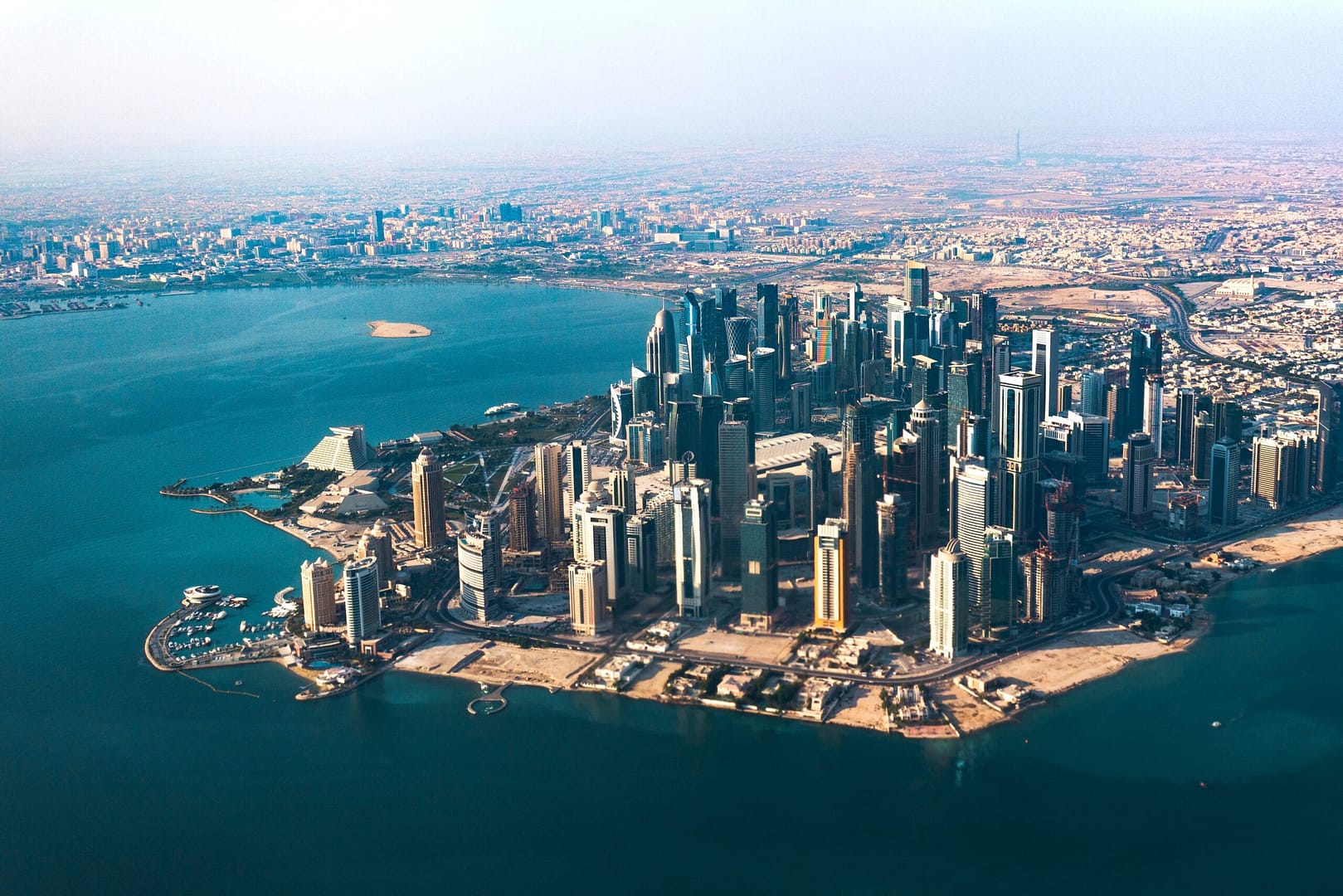
This article first appeared in Campaign Middle East, written by Christophe Castagnera, Head of Strategy at Imagination Middle East.
As the excitement builds in the lead-up to the first game between Qatar and Ecuador on 20th November, it’s important to explore the opportunities and experiences the tournament will bring to the region.
Qatar is a country with a rich and diverse culture. Ever since declaring its independence in 1971, Qatar has always welcomed people. The country’s culture reflects a mixing-pot of globalised influences, tied together by young professionals and their families calling Qatar home as its economy, business ventures and career prospects are maturing. Hosting the FIFA World Cup presents an opportunity for the country’s multi-national residents to come together through the shared experience and common ground of the beautiful game.
Qatar’s footballing fan-base now has the chance to enjoy the very best the game can offer and see their heroes play live. However, it’s the influx of international tourists in Qatar that will create so many of the opportunities for business and sports fans alike, encouraging new ideas and a wave of creativity. The experiential industry will benefit from visitors from all around the world, eager to experience the rich tapestry of culture, arts, traditions, and lifestyle on offer.
With a younger demographic, comes higher levels of technological advancements. The Middle East is a region where most institutions (including governments) have embraced smart phone capabilities. Everything is fast-paced and efficient, which results in a host of societies that are highly accessible and connected to the modern world. This offers significant advantages to the experiential industry.
The reception that these big events garner can be unprecedented. For example, Beast TV by MDLBeast launched with the first-ever use of live spatial audio during a high-tech live stream of the Soundstorm21 festival in Riyadh. An achievement that is not only pioneering in the region, but also globally, reaching over 100 countries and bringing Regional youth and creative culture to the world. Qatar is hosting the next MDLBeast spectacular; Aravia, during the World Cup.
It is precisely this youthful ambition that enables brands the leeway to be experimental – to try new things and catalyse innovation in their brand experiences. This allows for new expressions of localised art and culture, ones that challenge boundaries and perspectives, while simultaneously celebrating the region’s heritage and passion for football.
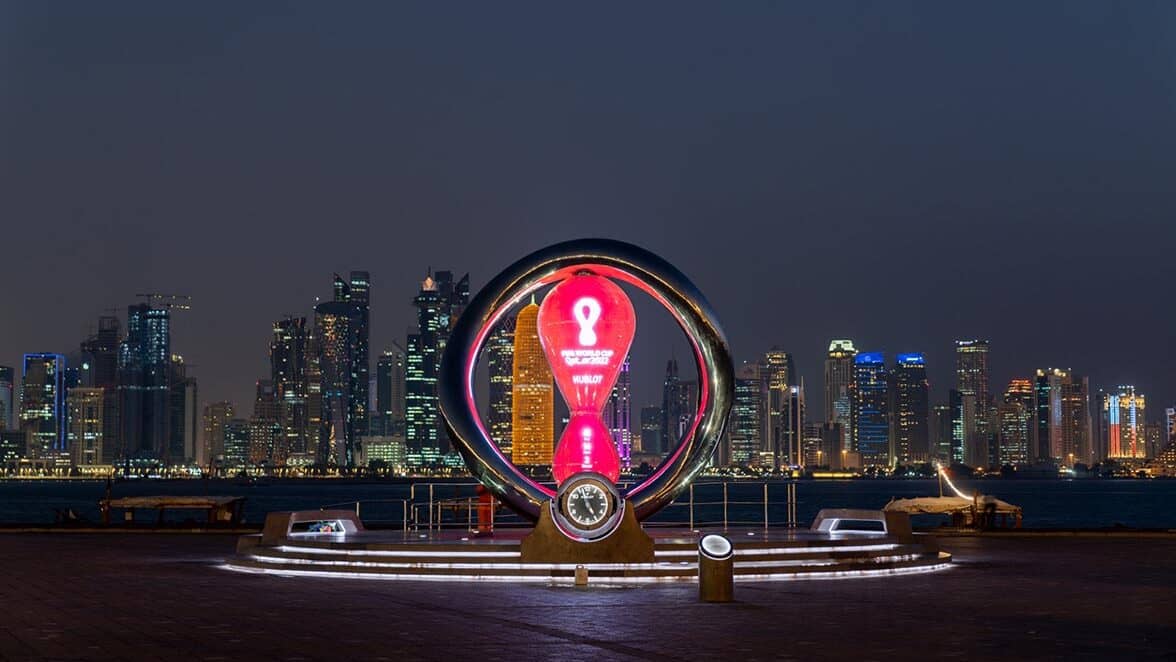
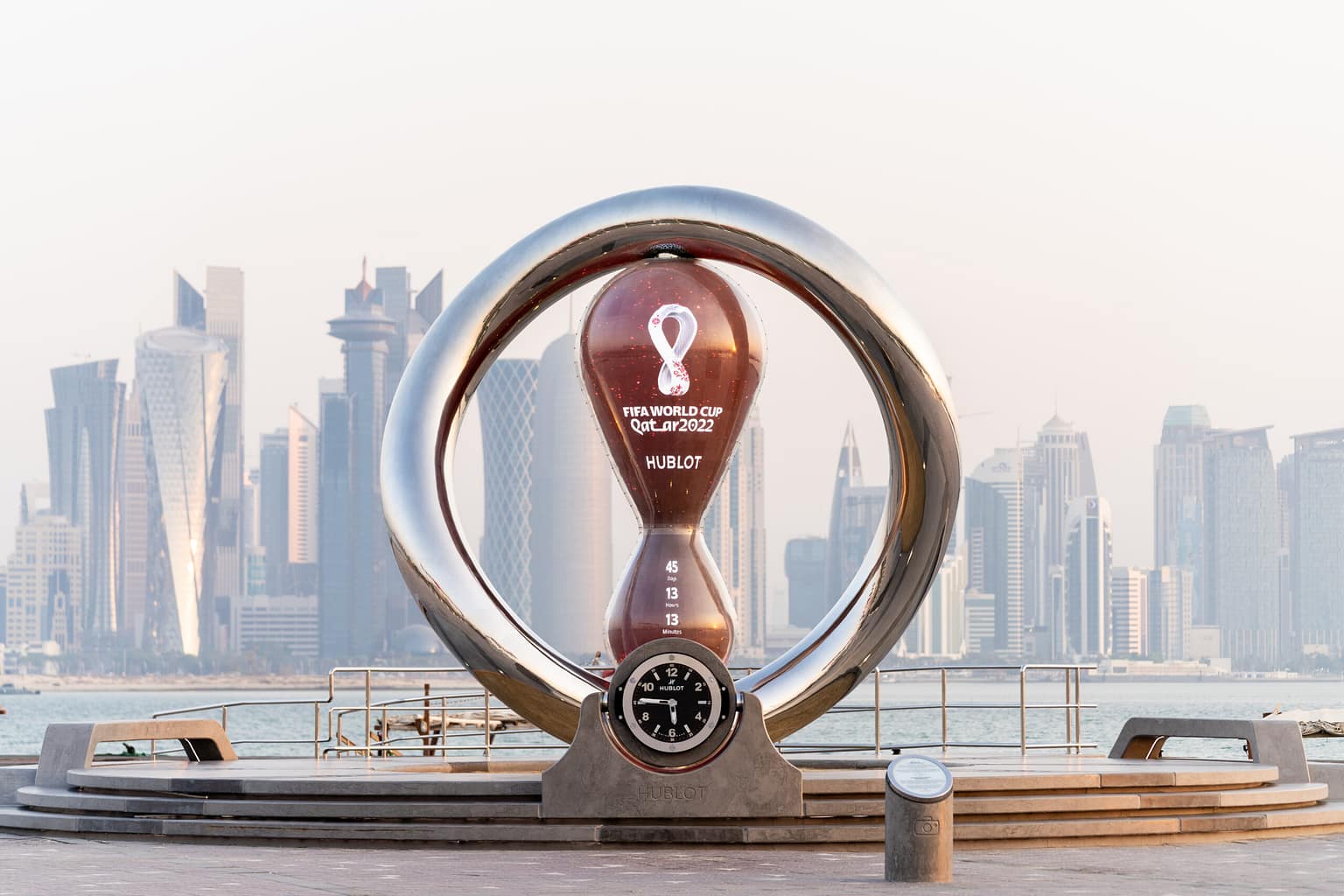


The FIFA World Cup Qatar 2022 Official Countdown Clock, which was unveiled on Sunday 21 November 2021, acts as a symbol of what to expect at the tournament this year, literally and figuratively. While the clock counts down the year to the big kick-off, the design and style of the ancient timekeeping tool of the hourglass, and surrounded by Doha’s skyline, reflects an event so anticipated by the world yet one that remains grounded within the region. Elegantly interwoven with Arab history and culture, the clock’s award winning design symbolises the wealth of possibilities the country can bring to this year’s World Cup, and the legacy that the tournament will pave for future hosts.
The experience economy is seeing vast growth in the region, propelled by the success of recent global events. Qatar held its first Formula One Grand Prix in 2021 and with The Geneva International Motor Show due to bring international attention to the country in October 2023. The future of Qatar’s place on the global stage is getting progressively stronger, attracting more visitors than ever before, and finding bigger platforms for audiences around the world to experience its culture.
By hosting the world’s largest and most recognised football tournament, Qatar’s role in shaping the future of the world’s largest sporting tournament will be defined by the pure passion of millions of football fans from the Arab world who will be able to, for the first time, see the potential their native region has to offer on the world stage.
